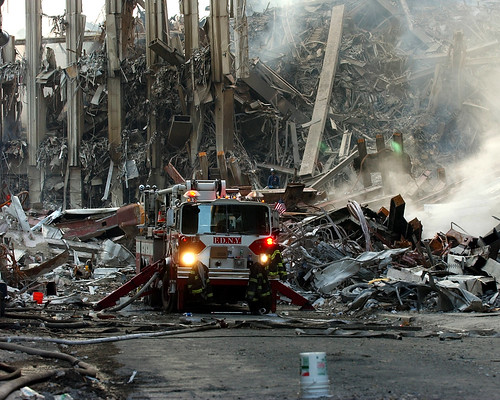
Image by slagheap on Flickr.com
Understanding terrorism (terroryzm) has gained actuality after the September 11 attacks (ataki) in New York. The number of victims – and the direct material damages – is by far the largest in the history of terrorism, even if assessed in relative terms, compared to the US population and output. Despite huge fluctuations in intensity (duże wahania w intensywności) over time, the history of terrorism shows it has evolved from ideologically-based (oparte ideologicznie) to religious-based (oparte na bazie religijnej), and becoming more lethal (śmiertelne) over time. Its objectives are to disrupt the economy, destabilize the polity and influence a wide general “audience“, well beyond the immediate targets.
Recent news from Iraq make us all think about terrorism a little bit more. As ISIS, a group thought to consist of only a few thousand people led by a shadowy figurehead, defeats forces many times its size to capture a large part of Iraq, RT looks into what is ISIS, and how has it achieved its terrifying triumphs.The world’s most committed and fanatical radical organization (najbardziej zaangażowana i fanatyczna organizacjia radykalna na świecie) has only recently gone by its current name, after the unrecognized Islamic State in Iraq and al-Sham (ISIS) (Bojownicy Islamskiego Państwa Iraku i Lewantu) was proclaimed in April last year. Al-Sham has been most commonly translated from Arabic as the Levant, hence ISIL.
Al-Qaeda has been the touchstone for the Western understanding of terrorism ever since 9/11, but ISIS differs from it philosophically, organizationally, and even officially, as it has declared itself an entirely separate body. If anything the two organizations – though both espousing Sunni Islam – are currently more rivals than allies.While Al-Qaeda, in its most well-known forms, is a terrorist organization, with sleeper cells, training camps and terrorist attacks, ISIS as of now is more a militia and a rogue territory with its own infrastructure, more similar to Boko Haram and other localized fiefdoms that have spawned in lawless or failed African states.
Do następnego razu… (Till next time…)





